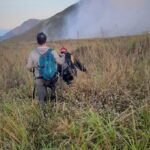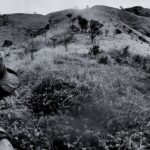TROPICAL BACKPACKING
Tropical backpacking is a type of budget travel that involves exploring tropical regions, such as Southeast Asia, Central America, or the Caribbean, carrying a backpack with basic essentials and staying in budget accommodations. It typically includes outdoor activities, such as hiking, scuba diving, and surfing, and experiencing local cultures and cuisines.
Old-School Backpacking
Old school backpacking typically refers to the style of backpacking that was popular in the mid-20th century, before modern technologies and materials were widely available. This style of backpacking was characterized by minimalistic equipment, heavy reliance on skills and experience, and a focus on enjoying nature and the outdoors.
Old school backpackers would often use heavy, durable equipment such as canvas tents, wool clothing, and leather boots. They would carry food and water for several days, and typically traveled in small groups, relying on each other for support and assistance. Navigation was often done using maps and compasses, and communication with the outside world was limited.
Old school backpacking was often seen as a way to connect with nature and experience the wilderness on a deeper level, relying on one's own skills and resources to overcome the challenges presented by the environment. While modern backpacking equipment and technologies have made it easier and more comfortable to enjoy the outdoors, many people still prefer the simplicity and challenge of the old school approach.
Modern Backpacking
Modern backpacking is a style of backpacking that has evolved in recent years, taking advantage of the latest equipment, technologies, and innovations to make backpacking more accessible and comfortable.
Modern backpackers often use lightweight, high-tech equipment such as tents made of lightweight materials, sleeping bags and pads made of high-tech insulating materials, and stoves that burn efficiently and weigh very little. They often carry dehydrated food that is lightweight and easy to prepare, and they use water filters or purification tablets to make water safe to drink. They may also use GPS devices, smartphones, and other electronics to help with navigation and communication.
While modern backpacking has made it easier and more comfortable to enjoy the outdoors, it is still focused on connecting with nature and experiencing the wilderness on a deeper level. Many modern backpackers still prefer to travel in small groups and to rely on their own skills and resources to overcome the challenges presented by the environment.








